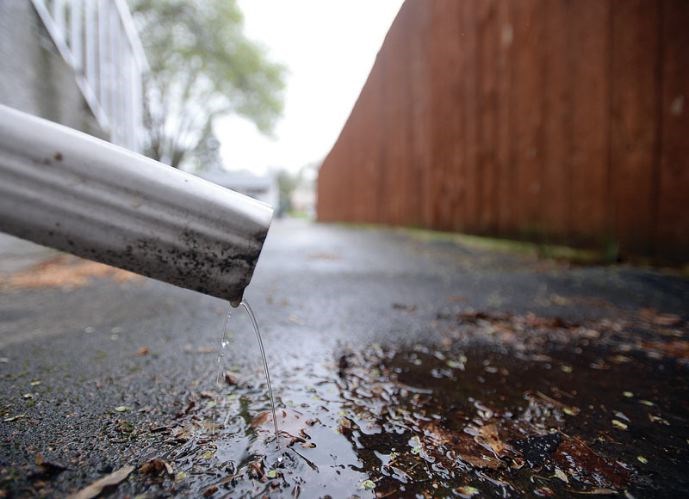The city may be going back to the drawing board to try and sell residents on the incoming storm water utility.
City council's finance and audit committee directed staff to develop a simpler rate structure Wednesday afternoon for the proposed dedicated utility fee to pay for storm water and drainage infrastructure.
It's a plan that has been bubbling under the surface for years. Council approved the creation of the utility in late 2012 with the goal of starting it in the beginning of 2015.
But a finalized program hasn't made it back to council chambers after months of development and public consultation.
Under the current plan, residents would be charged through a tiered flat rate structure according to the amount of impervious (or hard) surface area on their property, such as driveways, roofs and parking lots. The base rate of roughly $80 per year is calculated from an average-size single family home with 123 to 226 square metres of impervious area.
The utility fee would be used to reach a projected five-year average requirement of $3.85 million.
The consultants helping to develop the utility program at AECOM brought in a communications specialist from public relations firm Fleishman-Hillard to look at what the city had already done in terms of getting the message out about the new utility.
In his analysis, Mark Reder told the committee that the purpose of the utility wasn't necessarily clear and its intention was being drowned out by the issue of the costs and rate structure.
It's easier for people to grasp the purpose behind the water and sewer utilities, said Coun. Cameron Stolz, who put forward the idea of getting another look.
"This is one of those things that I've struggled with trying to explain to my neighbours and my friends who are going 'why are you taxing rainwater, and what the hell's an impervious surface and how does that reflect on my house?'" Stolz said.
When it comes to having a separate utility so money can only be used to pay for storm water projects versus keeping it in the general tax levy, a utility still makes sense, Stolz said.
"My concern is that we went for, what I will call, an A-class level project," he said.
Reder had recommended hosting a community forum about flood control to help bring the message about the utility's true purpose back to the forefront.
But holding such a discussion with the same information that was presented to the community in the fall wouldn't do much, said Mayor Shari Green.
"We know today that taxing rainwater is what people think this is. If we present again what it is today, I don't see the mood changing, or the concern, or the commentary changing," she said. "I would rather do a little more work on something simpler, with maybe a different down-the-road timeline of getting to fully funded because it will be a more palatable thing in my mind for people where you can say in the forum, 'this is what we've done, this is how far we got, we tried this really complicated aspect of making it fair for everybody but that didn't work... and so here's what it looks like today.'"



